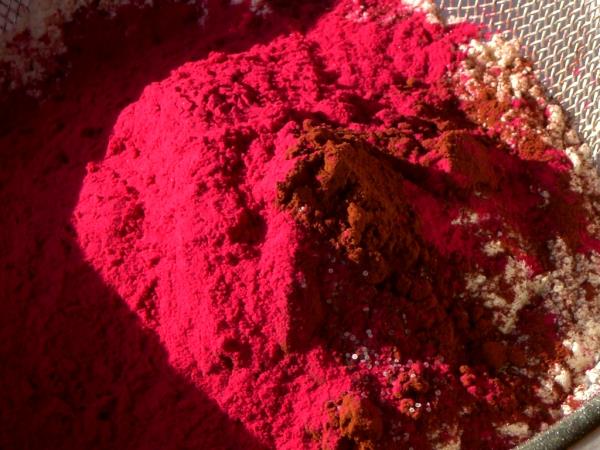Research shows that beetroot has powerful anti-inflammatory properties, contains antioxidants and other compounds that can improve heart health and overall well-being. Additionally, due to its high nitrate content, beetroot is known to enhance physical performance and accelerate recovery after exercise. In this article, we will explore in detail how beetroot powder affects our health, what nutrients it contains, and how it can be included in the diet.
1. Improving Athletic Performance and Faster Recovery
One of the most well-known benefits of beetroot is enhancing physical endurance and performance. Beetroot contains high levels of nitrates, which convert into nitric oxide in the body – a compound that dilates blood vessels and increases the flow of oxygen-rich blood to muscles. This translates to more energy and improved endurance during physical activity.
A study published in the Journal of Applied Physiology showed that taking beetroot supplements improved exercise efficiency by as much as 16%. Another study revealed that athletes who consumed beetroot powder before exercise were able to workout longer before experiencing fatigue.
Additionally, beetroot contains betalain, a pigment with strong anti-inflammatory and antioxidant properties. This compound helps reduce muscle inflammation and pain post-exercise and speeds up recovery. A study conducted at the University of Exeter demonstrated that beetroot supplements reduced muscle soreness by 18%.
2. Supporting Heart Health
Heart health is crucial for a long and quality life, and beetroot can make a significant contribution in this area. It contains compounds that improve blood flow and lower blood pressure. A study published in the Hypertension Journal showed that consuming beetroot juice reduced systolic blood pressure by an average of 5.2 mmHg.
Beetroot also contains a significant amount of potassium – 473 mg per two tablespoons of powder, representing 10% of the daily value. Potassium is a mineral that helps regulate blood pressure and counteracts the negative effects of sodium, which is often consumed excessively.
3. Strong Antioxidant for Better Immunity
Beetroot is rich in antioxidants, such as betalains, phenolic acids, and flavonoids. Antioxidants are crucial for protecting the body from free radicals that cause cell damage and contribute to the development of chronic diseases.
Studies have shown that betalain reduces the risk of certain types of cancer and prevents kidney damage. Adding beetroot powder to the diet can strengthen your immune system and improve overall health.
4. Nutritional Value of Beetroot Powder
Beetroot powder is low in calories but rich in vitamins and minerals. Two tablespoons of powder (approximately 20 g) contain:
- Calories: 59.94 kcal
- Carbohydrates: 12 g
- Fiber: 5.99 g
- Potassium: 473.4 mg (10% of daily value)
- Iron: 1.08 mg (6% of daily value)
5. Potential Risks and Precautions
Although beetroot powder is generally safe, it is important to follow recommended dosages. Excessive consumption can lead to increased oxalate levels, which raise the risk of kidney stones.
Some beetroot powder brands may contain heavy metals like cadmium. Therefore, choosing quality products from reputable sources is crucial.
6. Ways to Consume Beetroot Powder
Beetroot powder can be incorporated into the diet in various ways:
- Add it to smoothies or fresh juices.
- Mix it into yogurt or oatmeal.
- Use it in baking bread, pastries, or pancakes.
- Include it in homemade energy bars or protein balls.









 Would you like to be informed about news on the website?
Would you like to be informed about news on the website?

